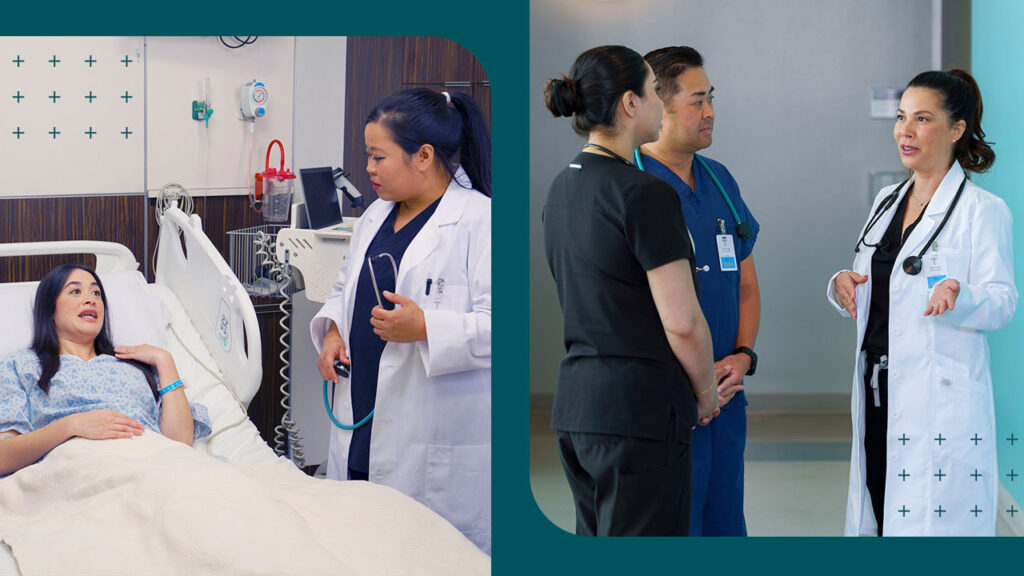Just like there are many types of doctors, there are a multitude of kinds of nurses. Many patients – and even aspiring healthcare professionals – don’t immediately know the difference between, say, a Registered Nurse and a Nurse Practitioner. It gets even more confusing when you refer to a nurse by their degree initials: RN, MSN, NP, LVN, AGCNP… the alphabet soup goes on.
Here are some need-to-knows: Levels of of education in nursing can range from a licensed nurse, like an Licensed Vocational Nurse (LVN), to a Registered Nurse (RN), to a nurse with an advanced degree like a master’s or doctoral (e.g. Nurse Practitioner), each with a wide range of options to pursue specialties, types of care, and working environments.
To help you decide which type of nursing you’d like to pursue or know more about, start here. Or if you’re a working nurse considering further education, or just a way to explain to friends, family and patients outside of the healthcare industry what your profession entails, we at West Coast University compiled a cheat sheet breaking down what different nurses are, and what they do:
What’s a Licensed Vocational Nurse?
A Licensed Vocational Nurse (LVN), sometimes known as a Licensed Practical Nurse (LPN) is a nurse with a certificate or an associate’s degree in nursing. An LVN usually works under the supervision of a Registered Nurse (RN) and/or in a facility that provides care to patients with disabilities, illness or injury.
What’s a Registered Nurse?
A Registered Nurse is educated either at a college or nursing school, and required to pass the National Council Licensure Exam (NCLEX) before practice. RNs work hands-on in a range of settings, including hospitals, private practices, in-home care and more, with a focus on patient interaction, preparation and education. RNs are licensed to administer medications, operate and monitor some healthcare equipment, among many other responsibilities.
What’s a Nurse Practitioner?
The difference between an RN and an NP starts with level of education. To become a Registered Nurse Practitioner, you need an advanced degree, at the master’s or doctoral level, and study within a specialization. With some exceptions like surgery, and some state-by-state requirements requiring physician oversight for prescribing medication, an NP may operate with autonomy, much like a doctor, and many patients choose to see an NP as their primary care provider (PCP).
What’s a Master of Science Nurse?
This is a nurse with a Masters of Science in Nursing, who may choose to specialize in education, administration, policy or leadership. MSN nurses are often less involved in clinical work directly with patients, and more in leading and supporting other nurses to ensure exceptional performance and up-to-date learning.
What’s a Doctor of Nursing Practice?
This is the most advanced degree available in nursing. Nurses who attain this rigorous advanced degree are prepared to go on to leadership positions, overseeing nurses at all levels, or teaching positions, training aspiring and working nurses.
Obviously within each type of degree there’s extensive nuance. For a deeper dive into where nurses work, lengths of study, certification expectations and more, see some of WCU’s program pages below:
- Bachelor of Science in Nursing (BSN)
- Registered Nurse to Bachelor of Science in Nursing (RN to BSN)
- Registered Nurse to Master of Science in Nursing (RN to MSN)
- Master of Science in Nursing (MSN)
- Doctor of Nursing Practice (DNP)
WCU provides career guidance and assistance but cannot guarantee employment. The views and opinions expressed are those of the individuals and do not necessarily reflect the beliefs or position of the school or of any instructor or student.



